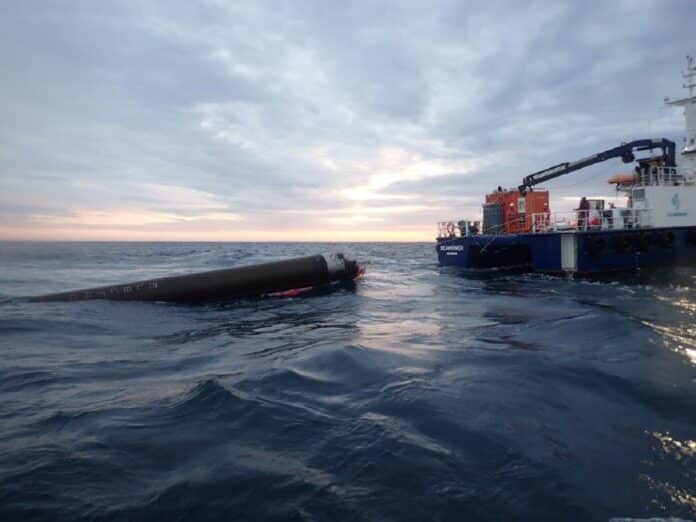Rocket Lab has announced that its next Electron mission will deploy seven satellites to space and include an attempt to recover the rocket’s booster after launch. The mission, called the ‘Baby Come Back,’ is scheduled to deploy from Pad A at Rocket Lab Launch Complex 1 in Mahia, New Zealand.
As a part of this mission, the California-based company is also planning to conduct a marine recovery of the 59-foot-tall (18 meters) Electron’s first stage. The recovery team will retrieve Electron using a customized vessel and transport the stage back to Rocket Lab’s production complex for analysis.
Data from this recovered stage will inform Rocket Lab’s ongoing recovery and reuse program. The mission is a rideshare mission and will carry satellites for multiple customers.
“This mission demonstrates Rocket Lab’s ability to provide responsive space capabilities on accelerated timelines by making access to space possible for customers when they run into roadblocks,” said Rocket Lab Founder & CEO Peter Beck. “Electron is the world’s most reliable small launch vehicle and is demonstrating it can deliver customer’s payloads on their schedule.”
After the Electron’s booster sends its second stage toward orbit, it will come back to Earth under parachutes, making a sift splashdowns in the ocean. The rocket is too small to make powered touchdowns; the Electron cannot carry enough fuel to have the requisite amount left over for landing maneuvers. The company aims to launch an Electron with one pre-flown Rutherford engine on a mission later this year. The launch vehicle features nine Rutherfords in its first stage and one vacuum-optimized Rutherford in its upper stage.
The Electron rocket will lift several customer payloads to space, including a 4 CubeSat mission for NASA, the LEO 3 demonstration satellite for Space Flight Laboratory, and two 3U satellites carrying Global Navigation Satellite System Radio Occultation (GNSS-RO) payloads for Spire Global.
The company has conducted several successful marine recoveries in the past. It also test-fired a reused Rutherford first-stage engine for the first time in September last year. In addition, Rocket Lab recently flew its first suborbital testbed launch vehicle, called HASTE (Hypersonic Accelerator Suborbital Test Electron).
